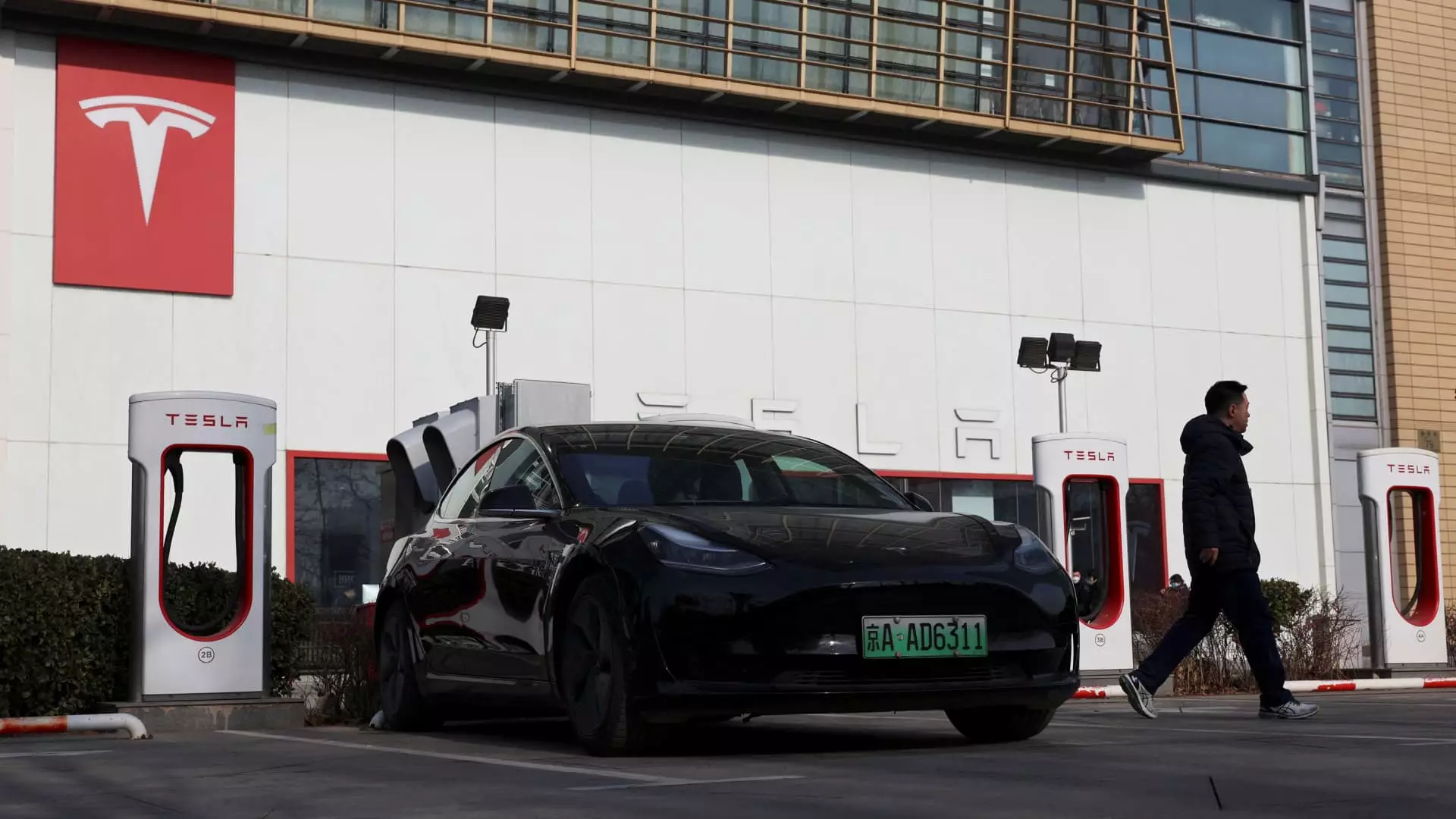The automotive industry in China has entered a significant transitional phase, particularly marked by a rising tide of domestic electric vehicle (EV) manufacturers. As we look ahead to 2025, it appears that traditional foreign automakers, having occupied a dominant position for decades, are finding it increasingly difficult to navigate a rapidly evolving market landscape. Nomura’s recent global automotive outlook for 2025 suggests that local giants, such as BYD, are not only solidifying their position but also actively pushing foreign competitors towards the exit.
A stark illustration of this shift is BYD’s reported 16% share of the Chinese auto market as of October 2024—a notable increase from 12% the previous year. This growth trajectory showcases how local brands are managing to capitalize on their understanding of consumer preferences. Analysts from Nomura place their confidence in BYD, assigning it a ‘buy’ rating and projecting a modest price increase. The true turning point came when BYD outperformed Tesla in quarterly revenue for the first time, revealing a noteworthy change in consumer loyalty and market dynamics that may not favor foreign brands in the long term.
The impressive surge in BYD’s sales figures is juxtaposed against a disappointing trend for its American counterpart, Tesla, which reported a 4.3% decline in sales year-over-year for November. In stark contrast, BYD’s sales soared by an astounding 67% during the same period. This growth points to a possible consumer preference shift towards more affordable and locally produced vehicles, which are increasingly seen as offering superior value compared to higher-priced imports.
Moreover, in a market where the average consumer has varying priorities, BYD’s mix of battery and hybrid vehicles caters to a broader customer base. Tesla, whose vehicles carry a heftier price tag, seems to be cornered into a niche that may be losing ground against the diversified offerings from local companies. Notably, BYD’s hybrid models constitute at least 50% of its sales, which has allowed the company to persistently grow its market share despite a competitive environment saturated with new entrants.
The Role of Geely in the Evolving Market
While BYD leads the charge, Geely emerges as another key player in this transformative landscape. Possessing an 8% market share, Geely appears to be on course for substantial growth, as articulated by HSBC analysts, who have raised the company’s stock price target significantly. Their belief that Geely will surpass its full-year unit target reflects an optimism that underlines the brand’s commitment to innovation, particularly in electric vehicle penetration.
Geely’s portfolio includes various global brands, such as Volvo, which enhances its competitive advantage. This diverse ownership not only broadens Geely’s technological capabilities but also places the company in a favorable position to leverage synergies within its various divisions. The electric vehicle sector is projected to be a growing focus, with forecasts suggesting that EV penetration could reach 40% amid growing consumer demand for eco-friendly automobiles.
While traditional and established manufacturers like BYD and Geely take center stage, numerous startups in the EV sector continue to grapple with their market presence. Companies such as Nio and Leapmotor, despite challenges, are positioning themselves with strategies aimed at sustainable growth. Citi analysts have identified Leapmotor as a financially astute competitor, efficiently allocating resources towards research and development compared to its peers.
Notably, Nio is striving for operational efficiency and aims for breakeven by 2026. Its strategy includes controlled R&D spending and increasing vehicle deliveries, aligning its priorities with market demands. This operational prudence could serve as an effective model for other startups navigating the competitive landscape. Furthermore, the involvement of tech giants like Huawei, which has partnered with automakers to introduce advanced features into electric vehicles, signifies an interesting trend towards collaboration rather than direct competition in the market.
As the automotive sector in China evolves, it becomes increasingly clear that domestic manufacturers are seizing the moment to define the future of mobility. Traditional automakers are facing challenges that require innovative solutions to thrive in an increasingly competitive environment. While the immediate landscape appears to favor local giants like BYD and Geely, the story is far from over.
Changes in consumer preferences, technological advancements, and the growing acceptance of electric and hybrid vehicles suggest a bright future for local automotive players. The strategic decisions made by these companies will undoubtedly influence the long-term direction of the automotive landscape in China and beyond. As the market matures, it is important to watch how established players and newcomers alike adapt to this shifting paradigm, eager to claim their stake in the evolving realm of electric mobility.

